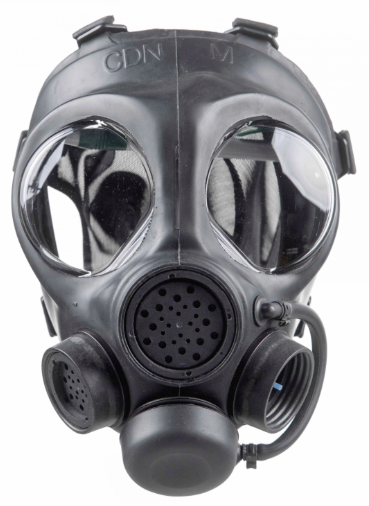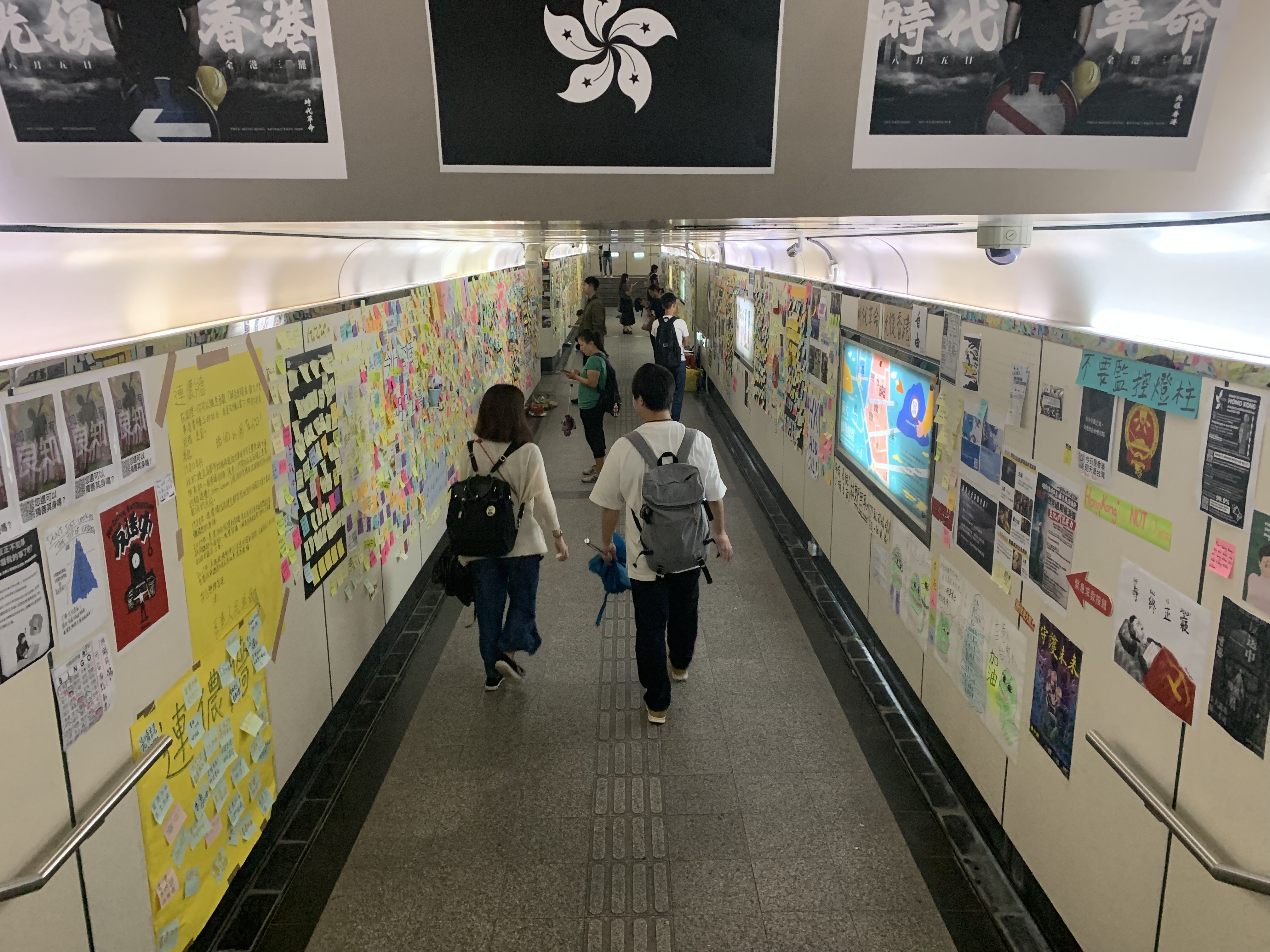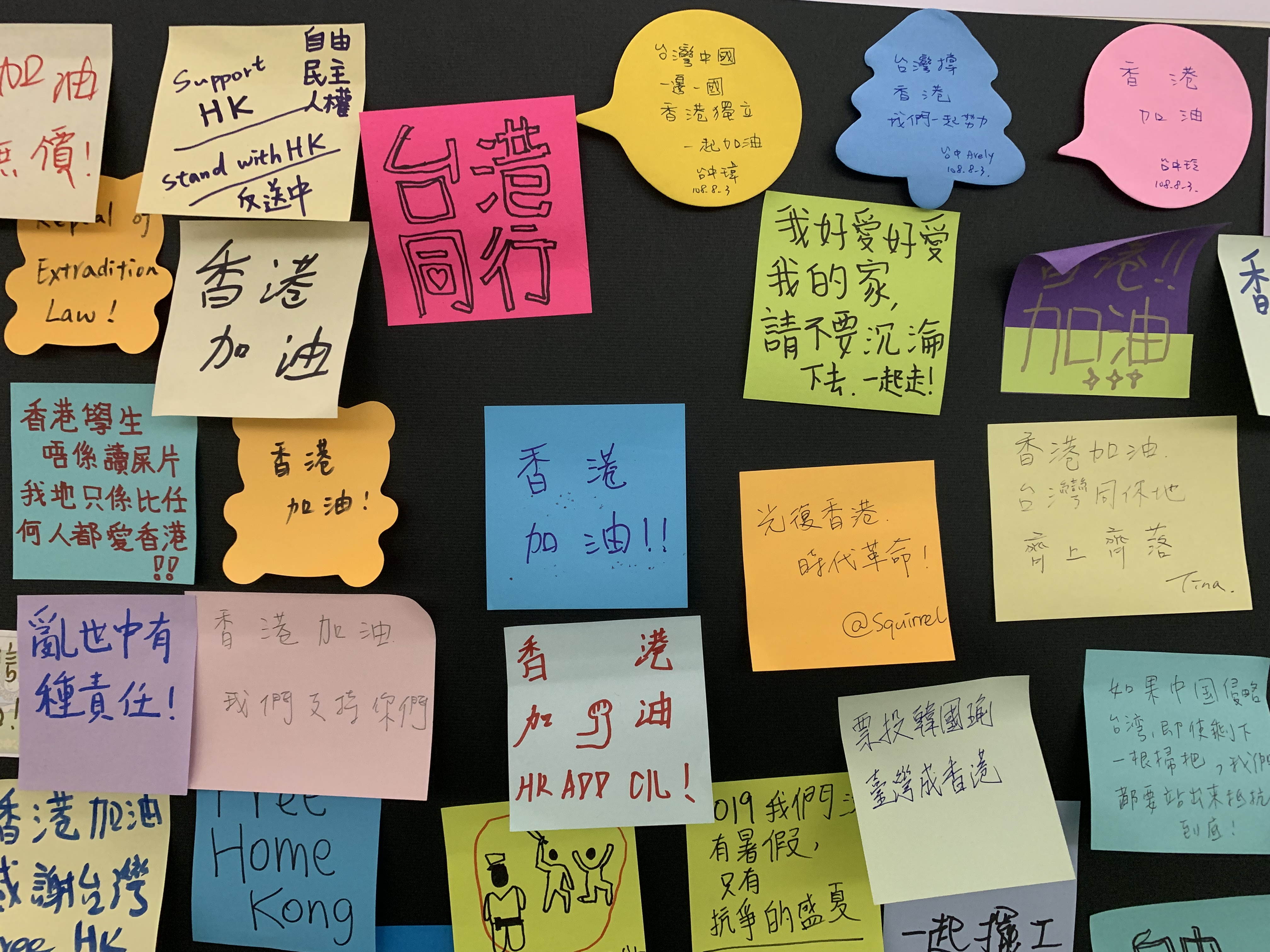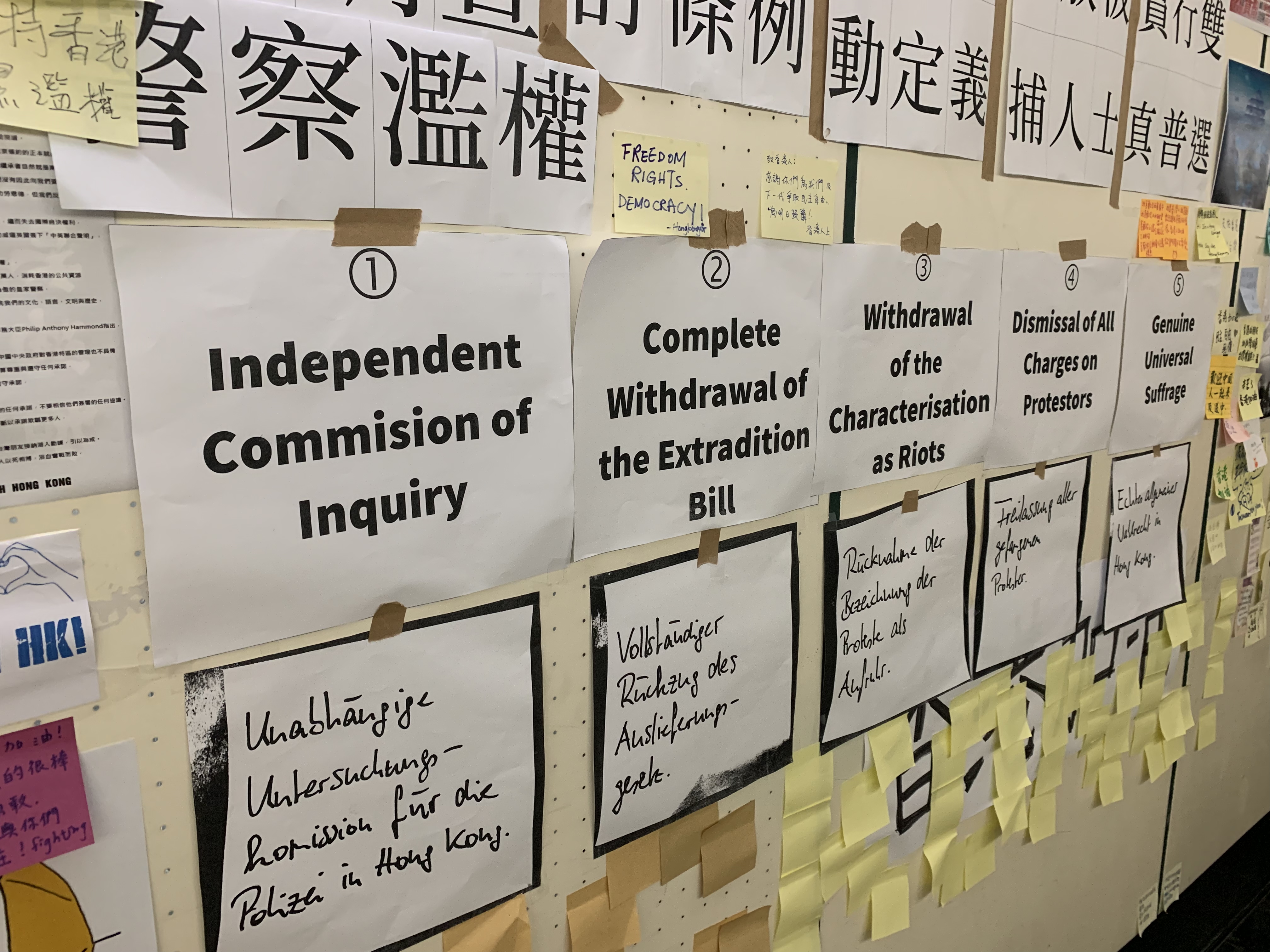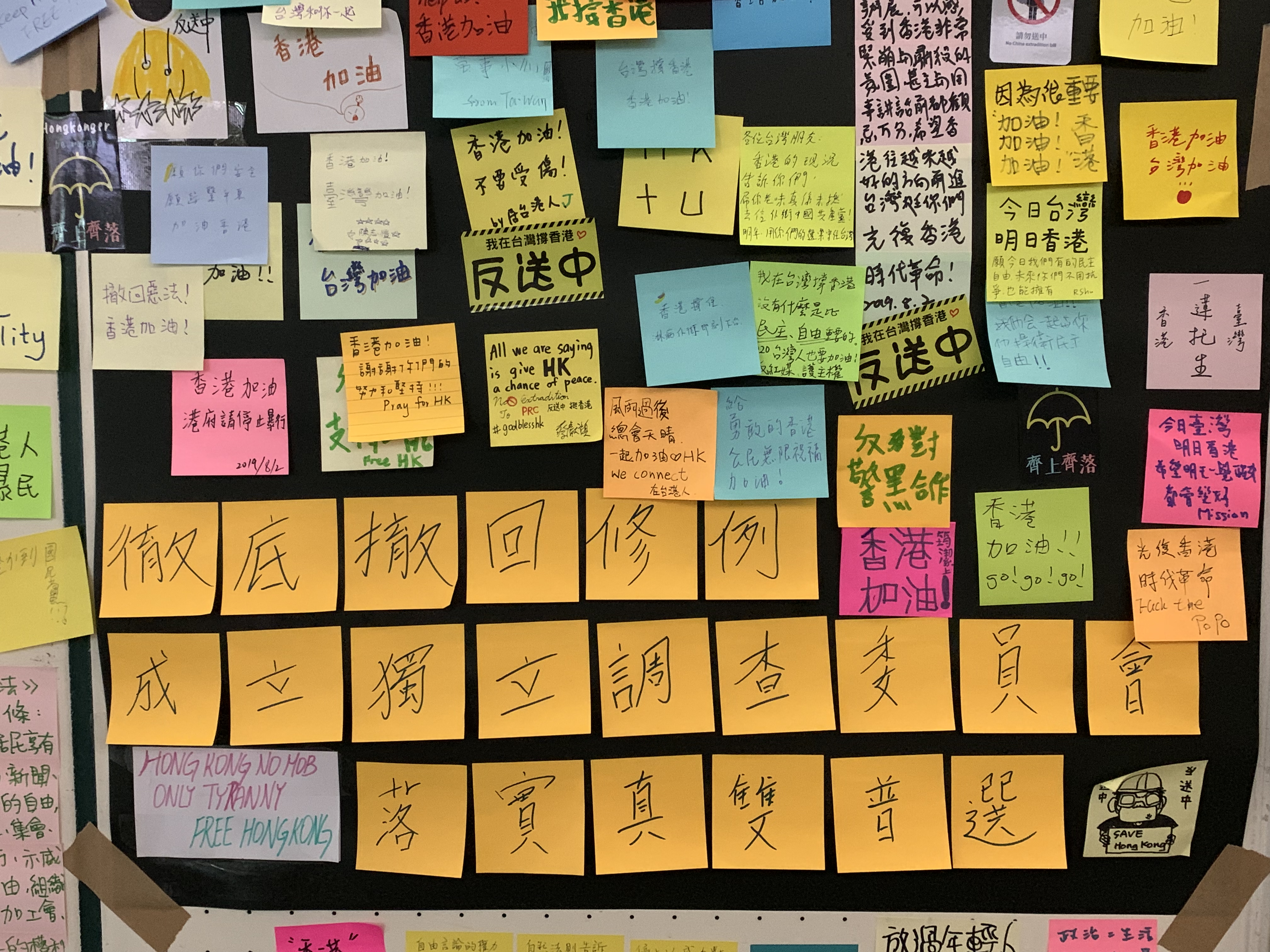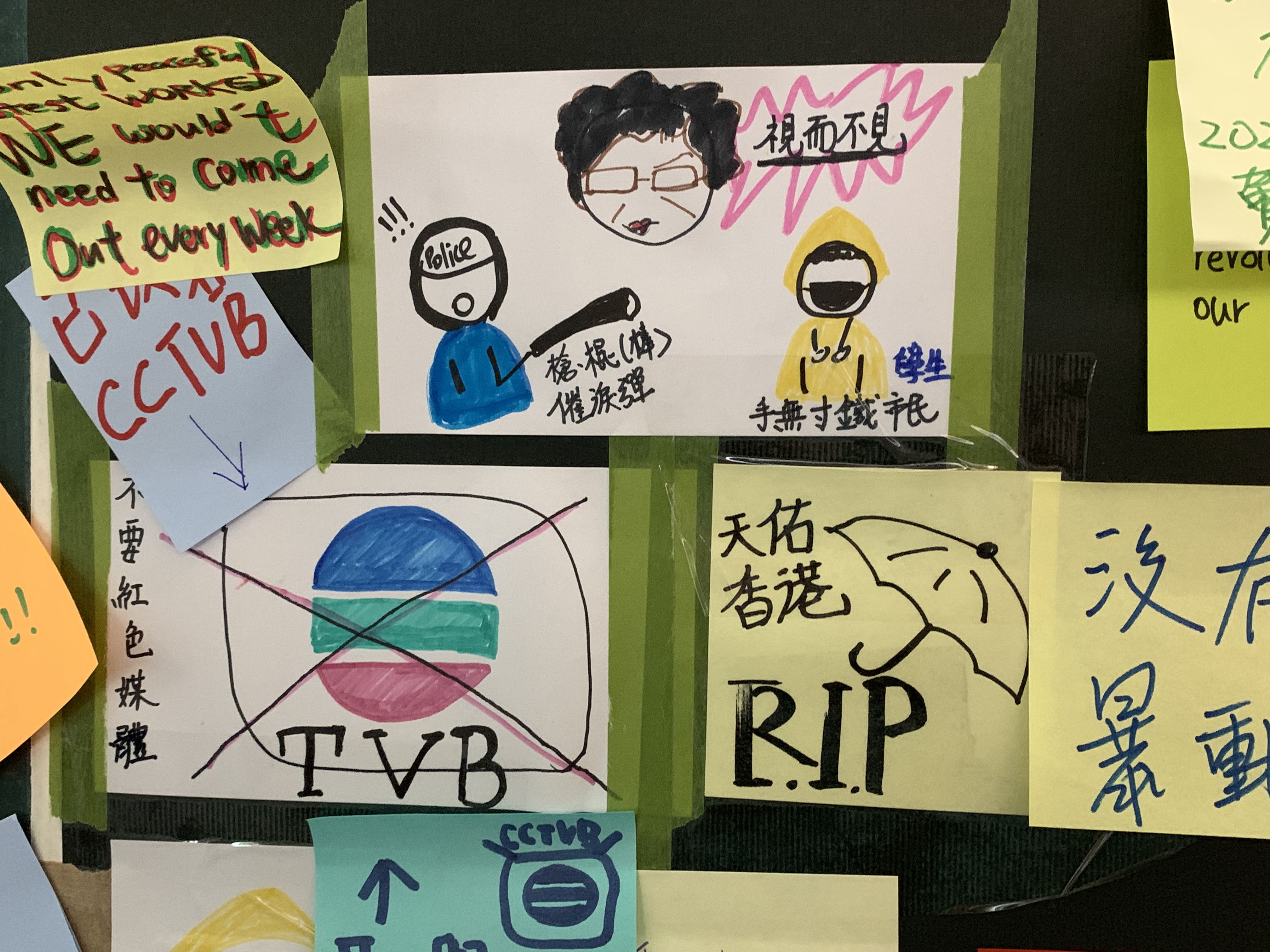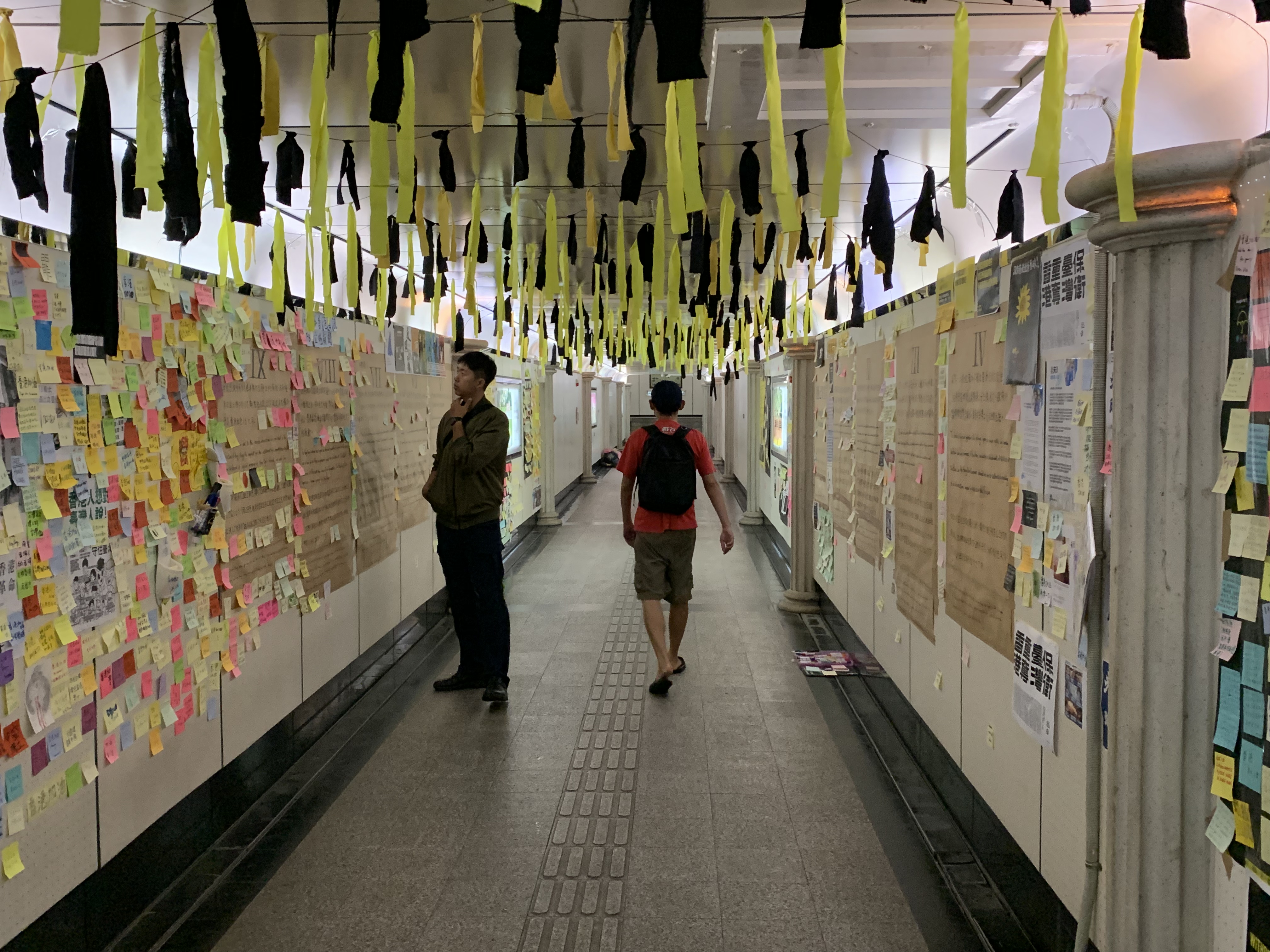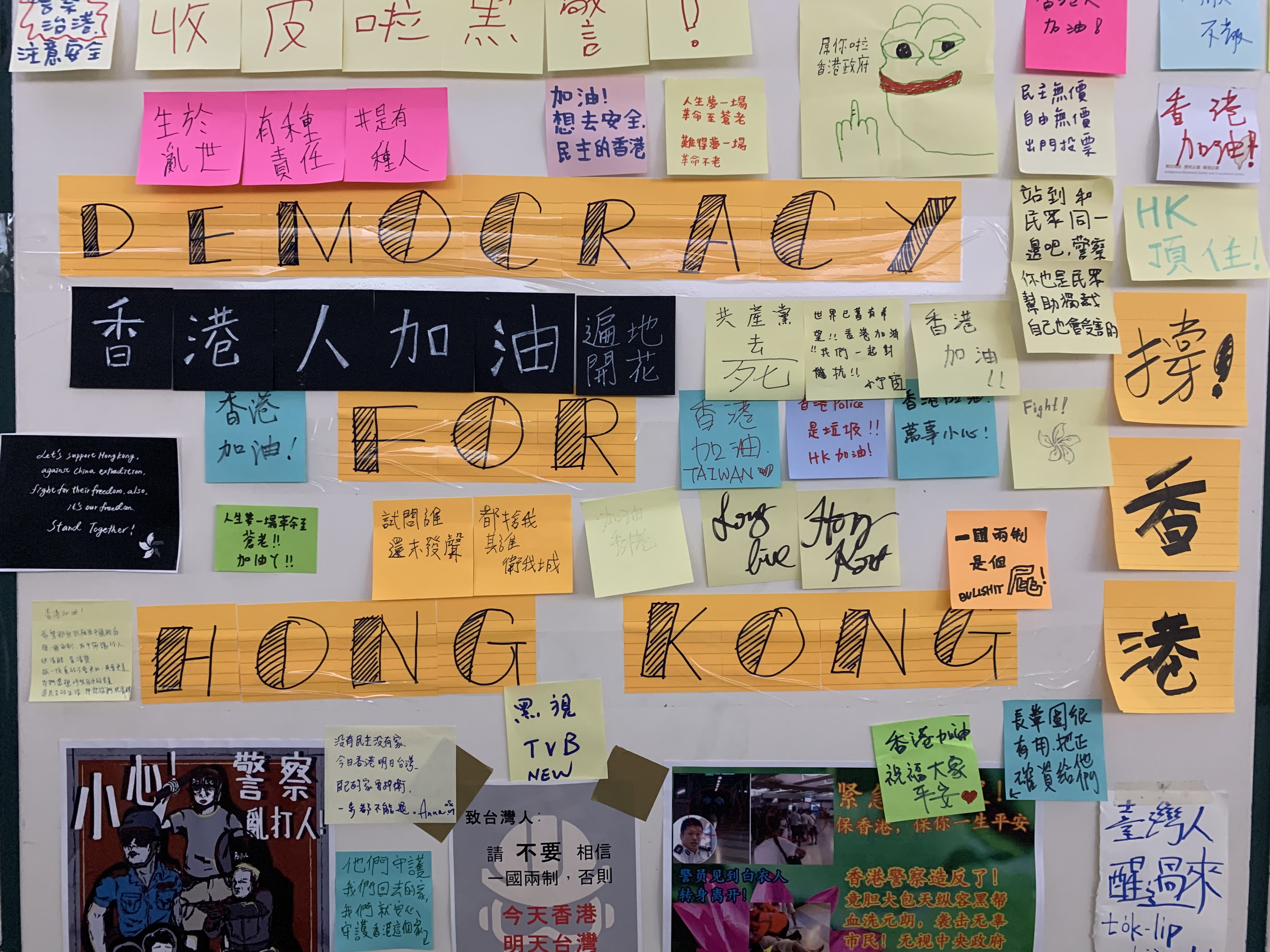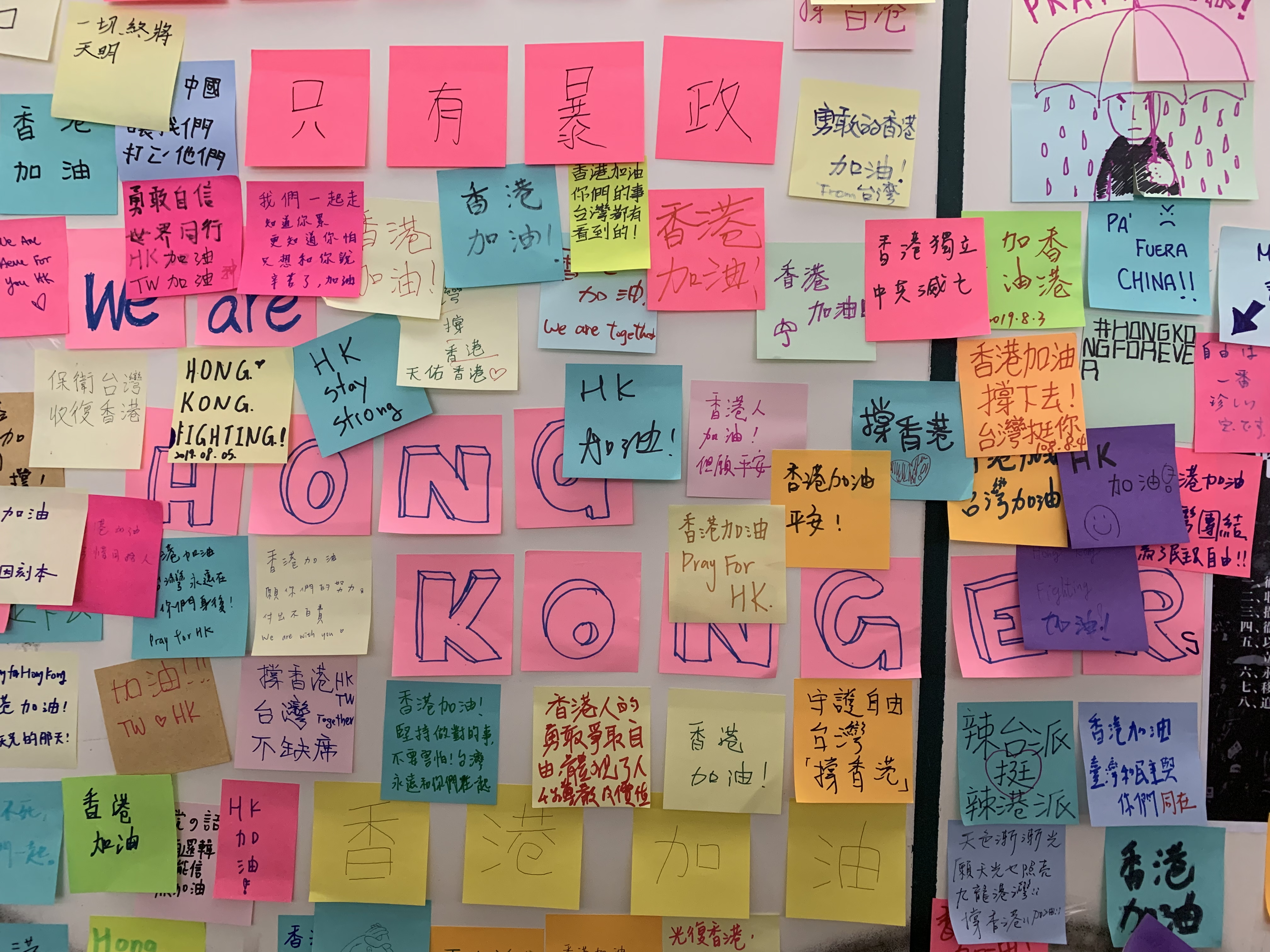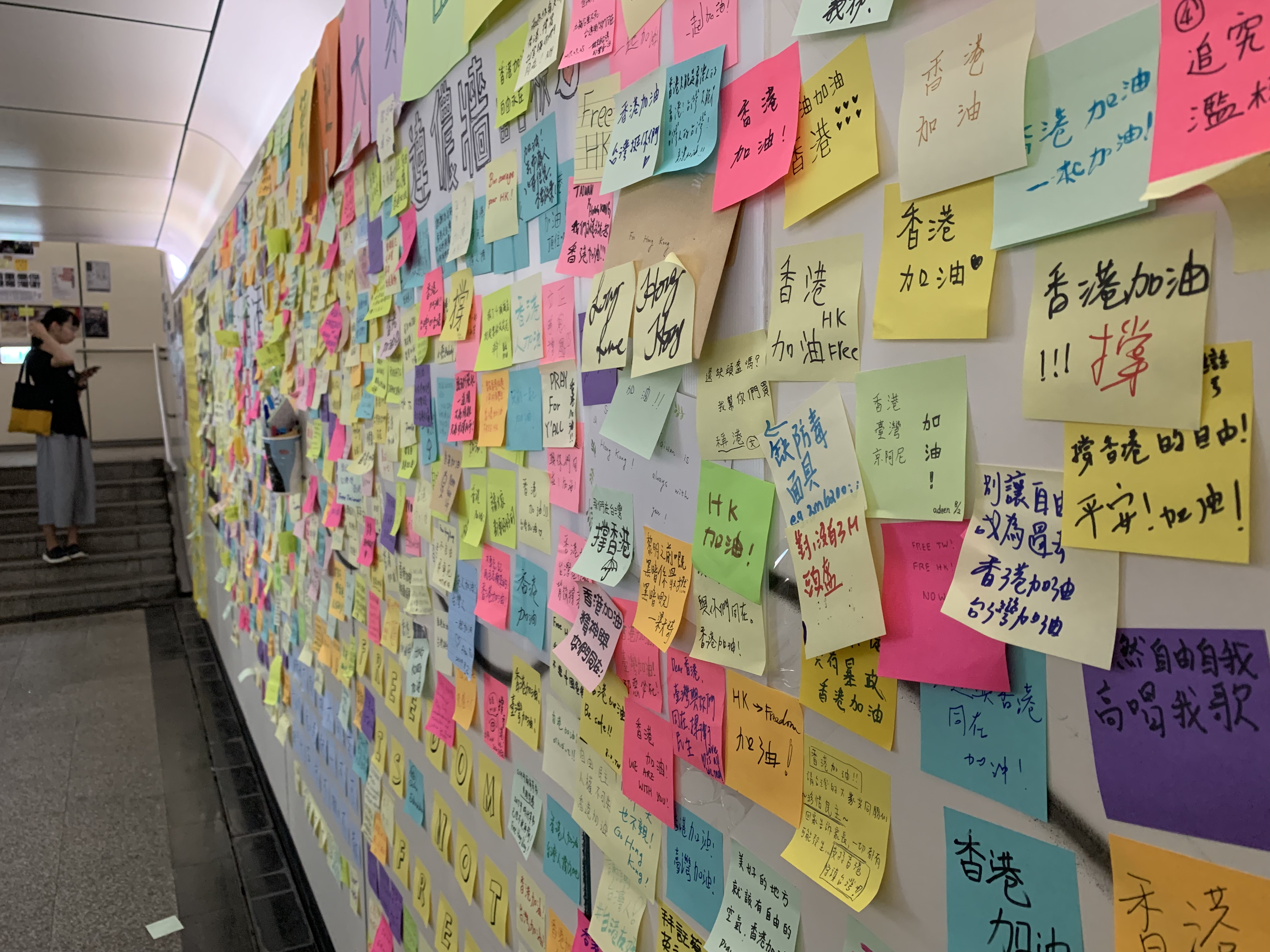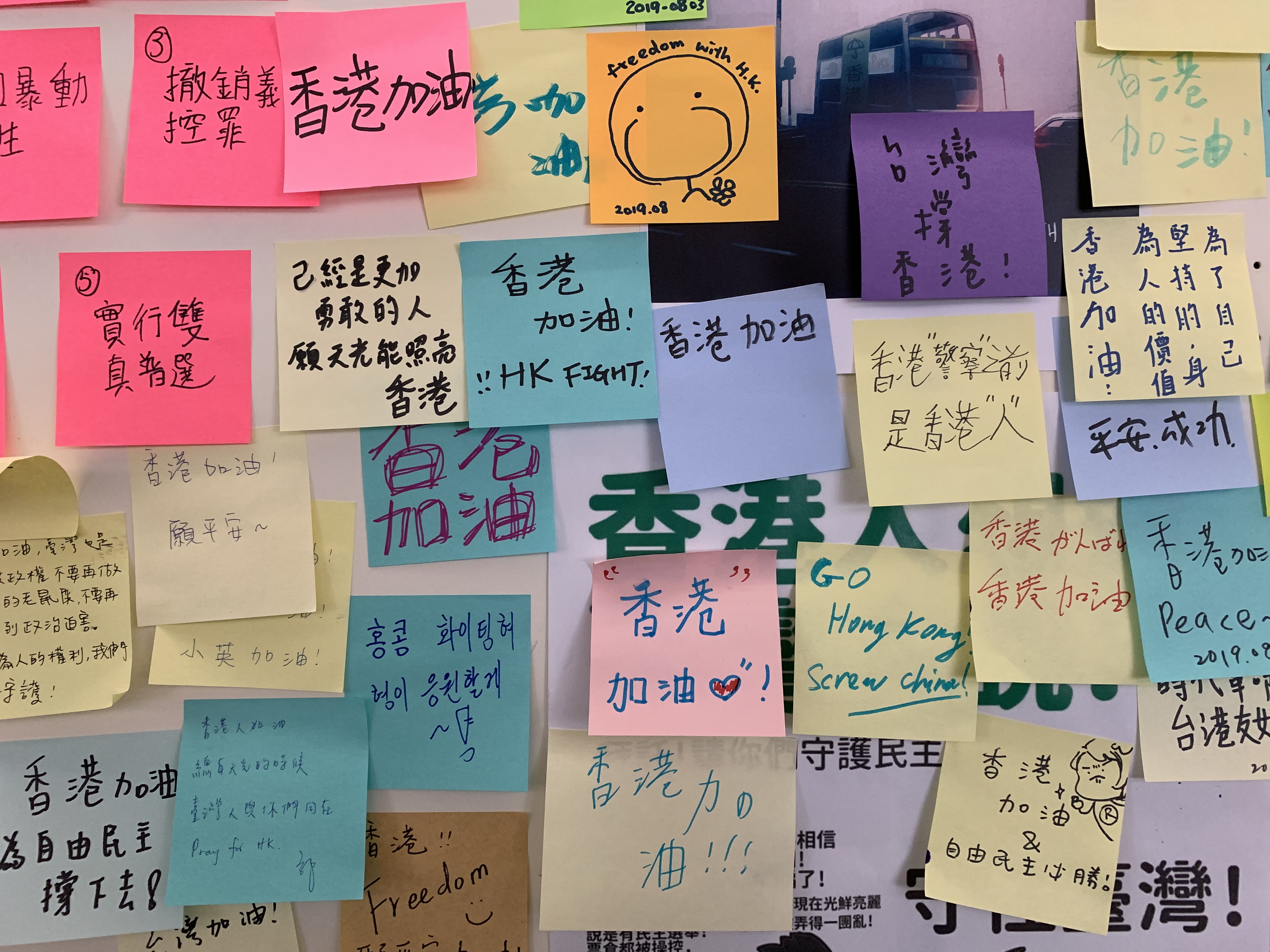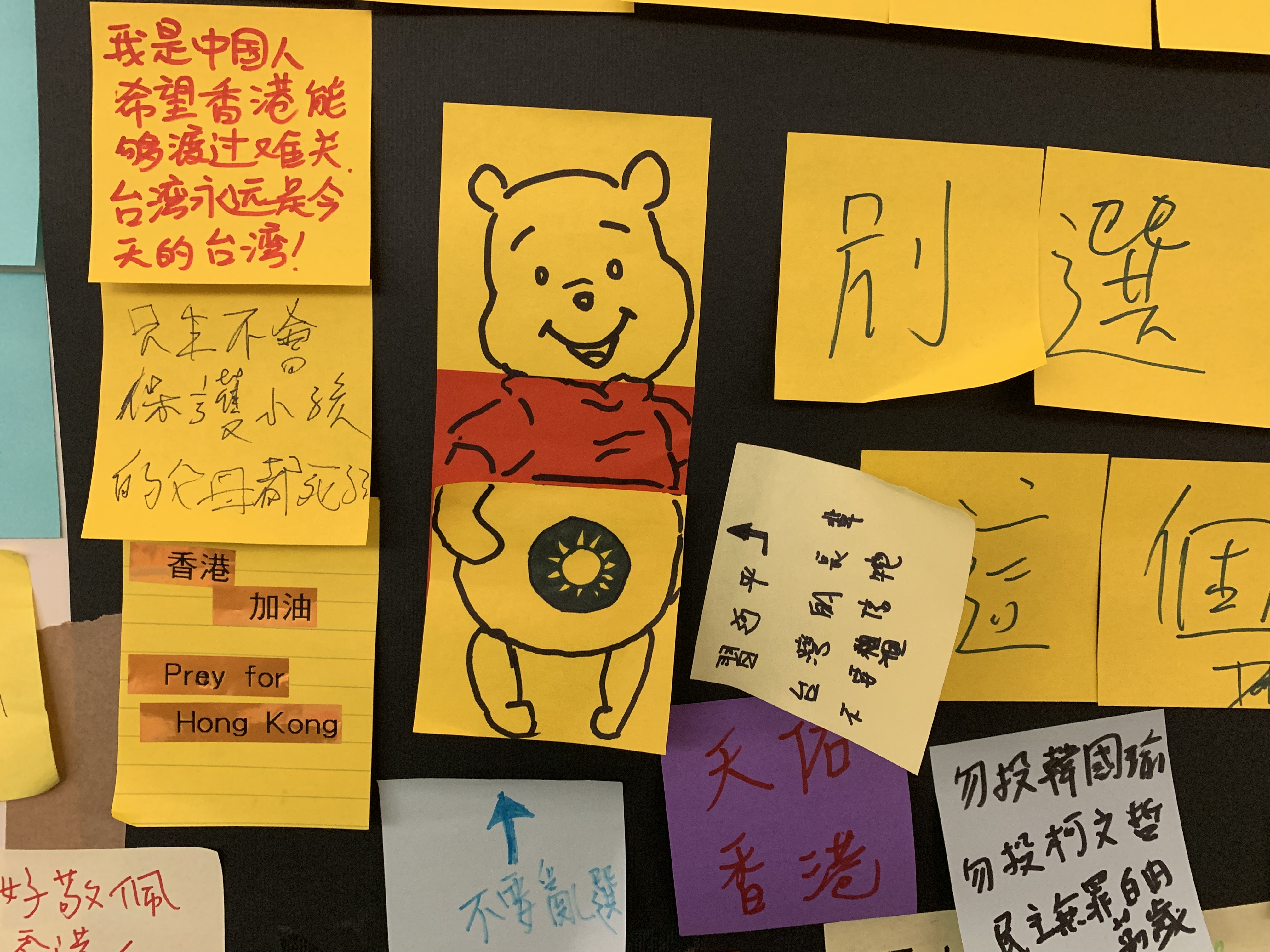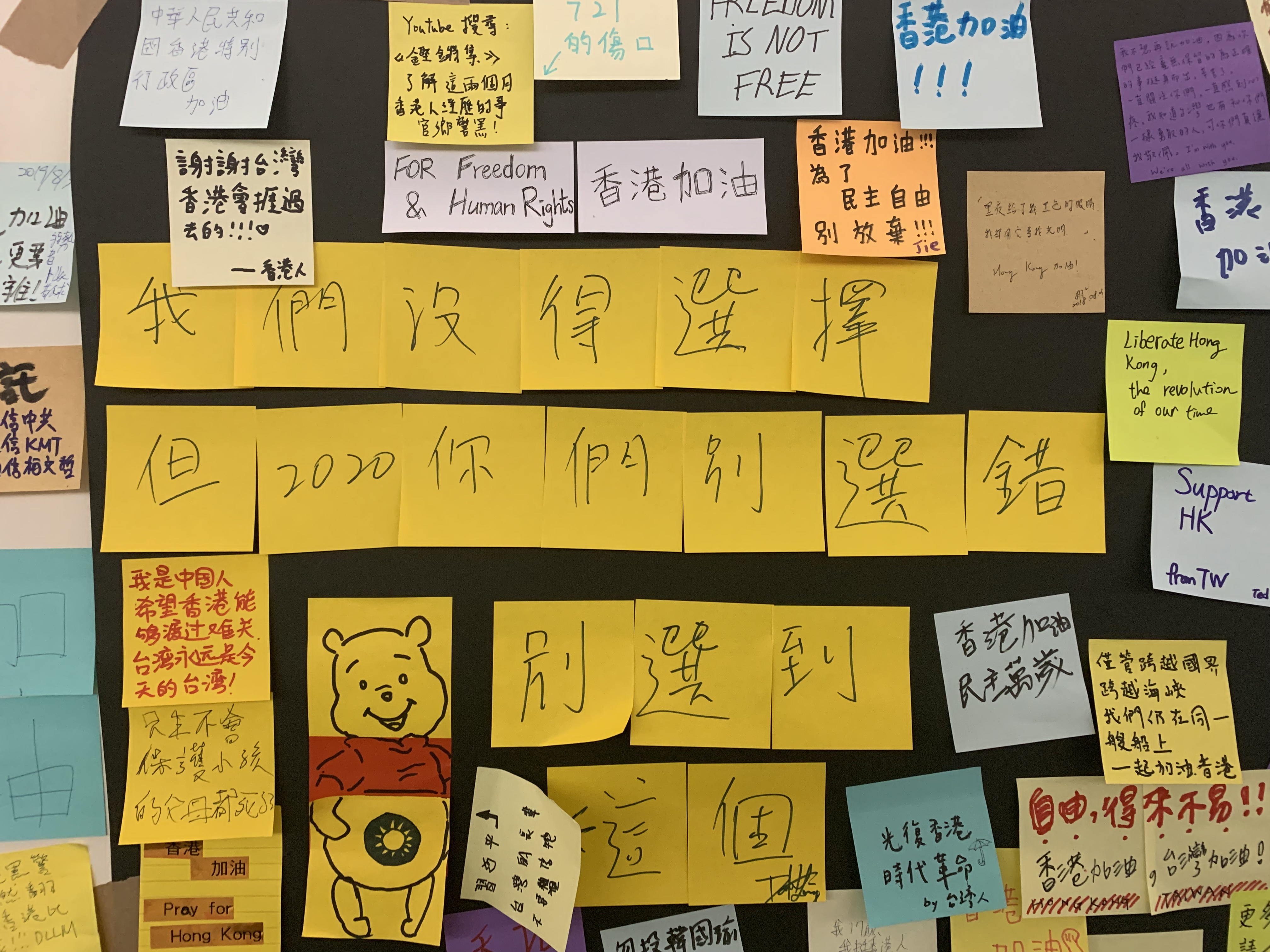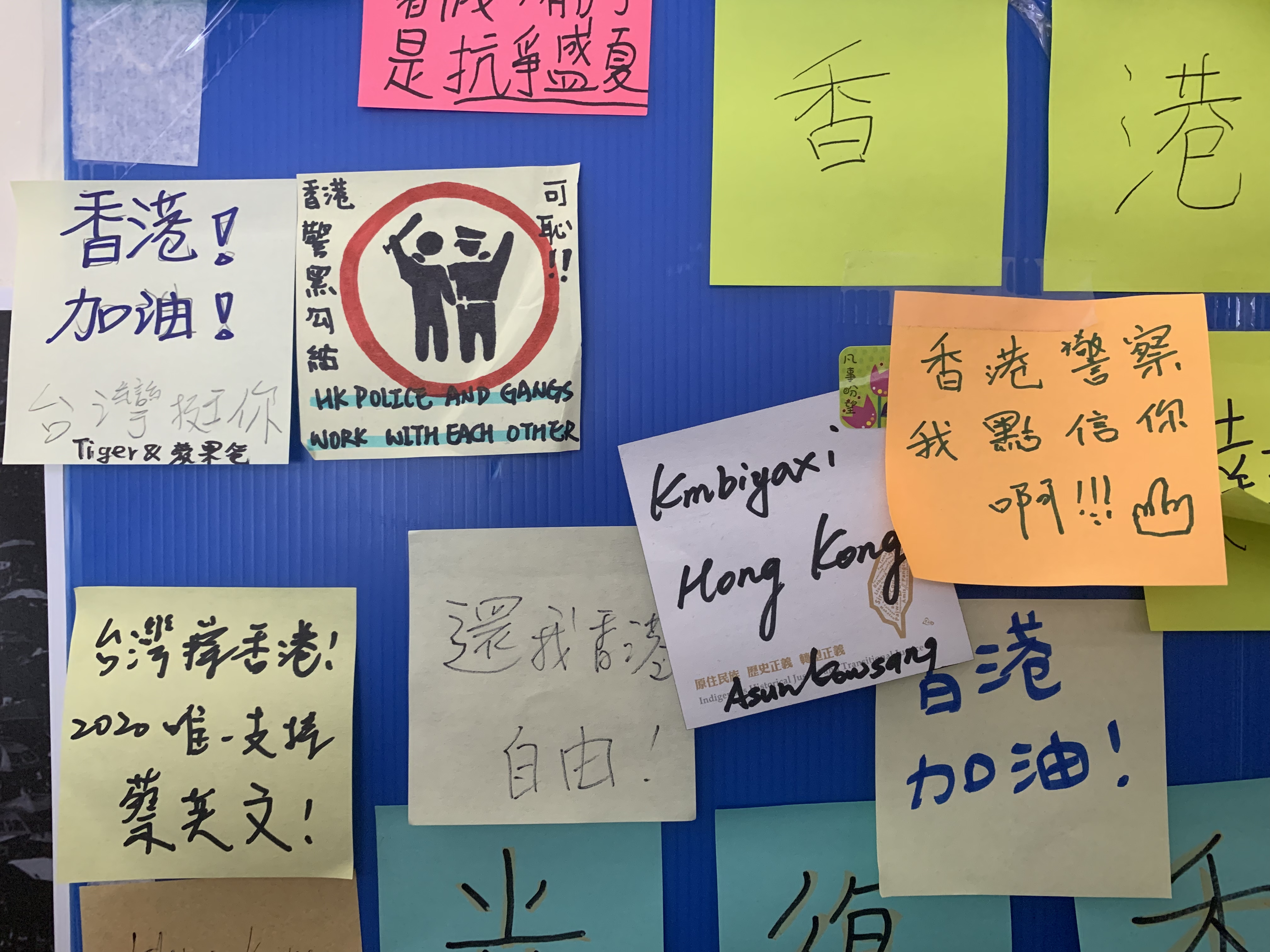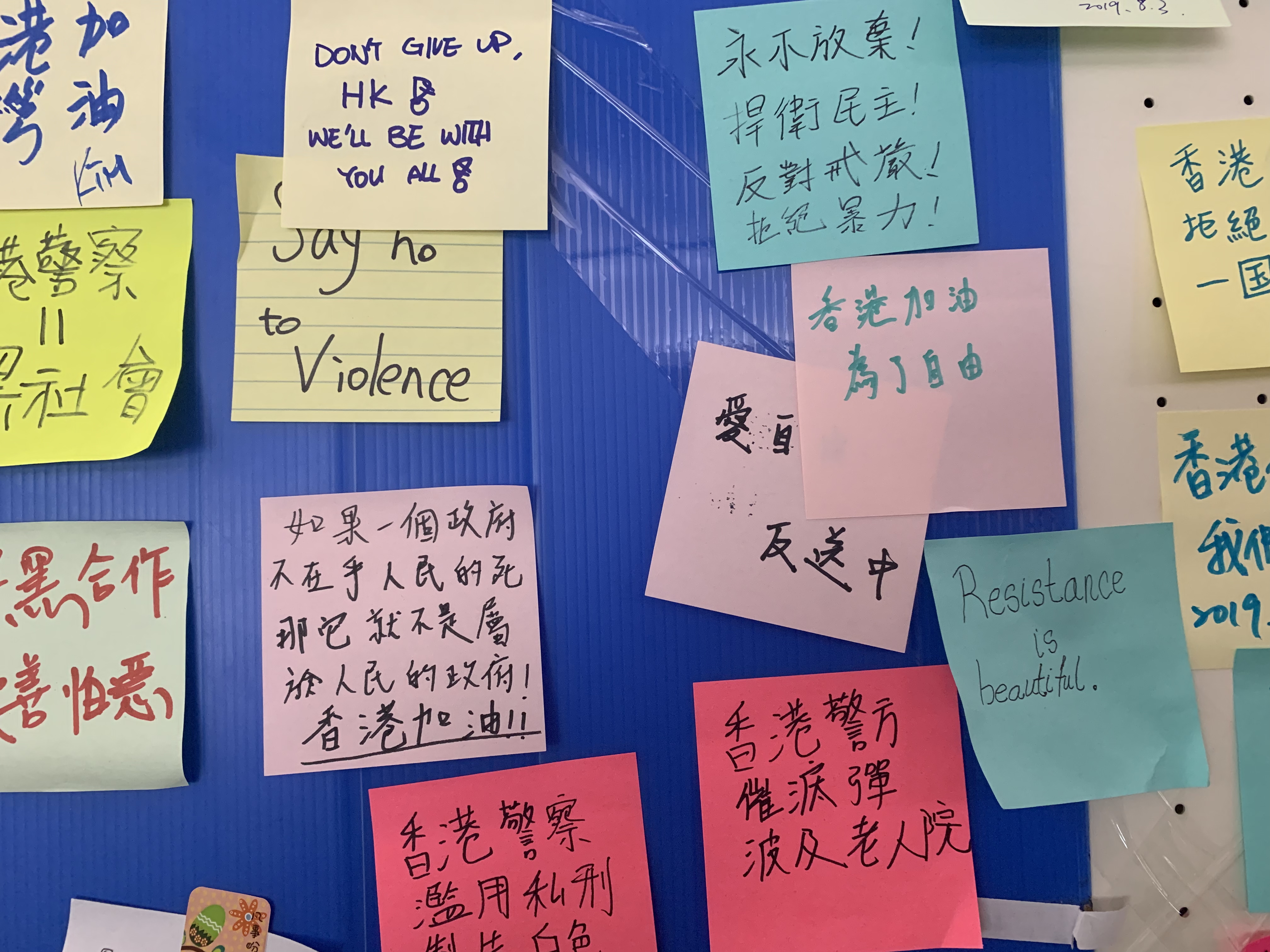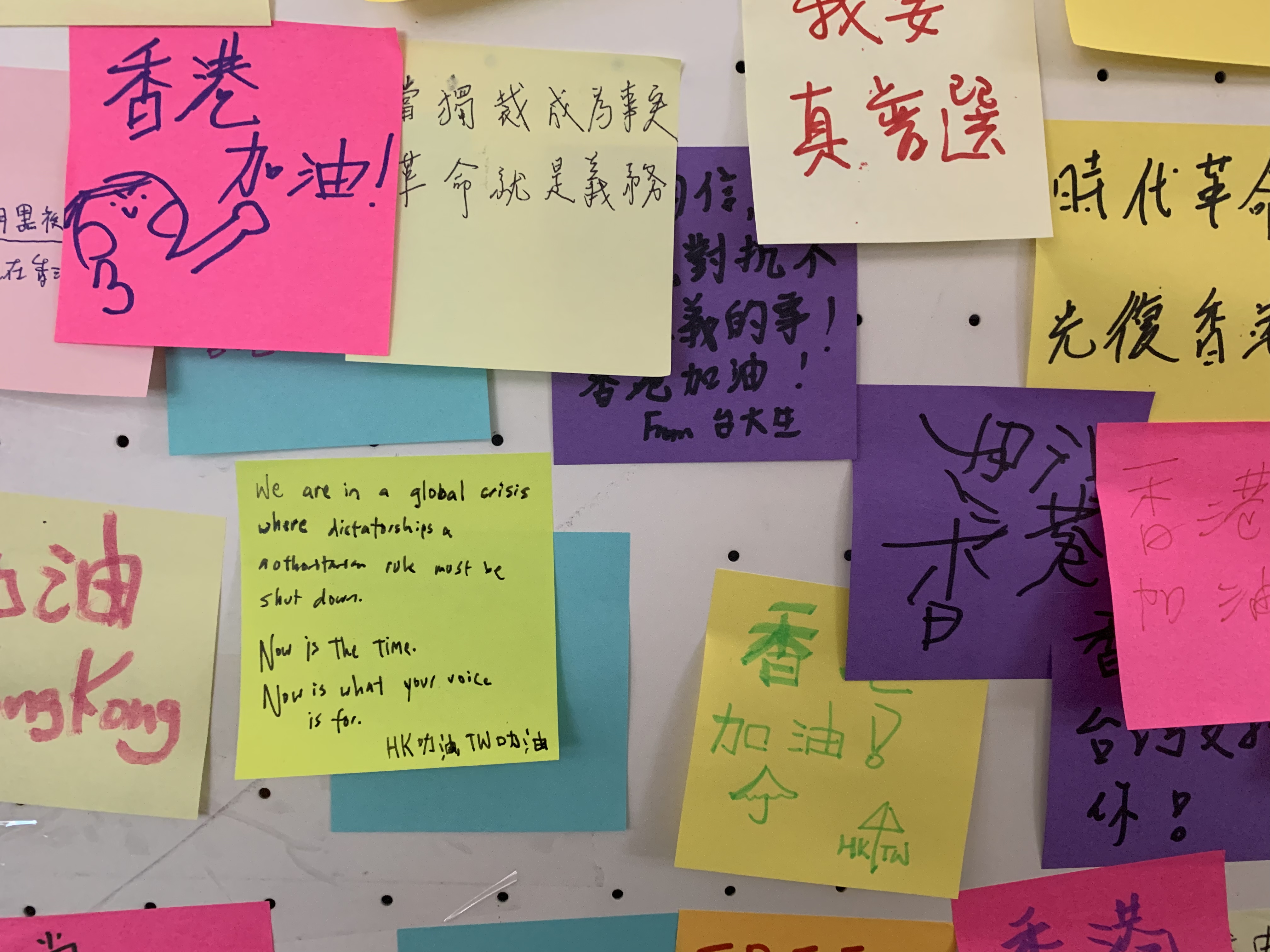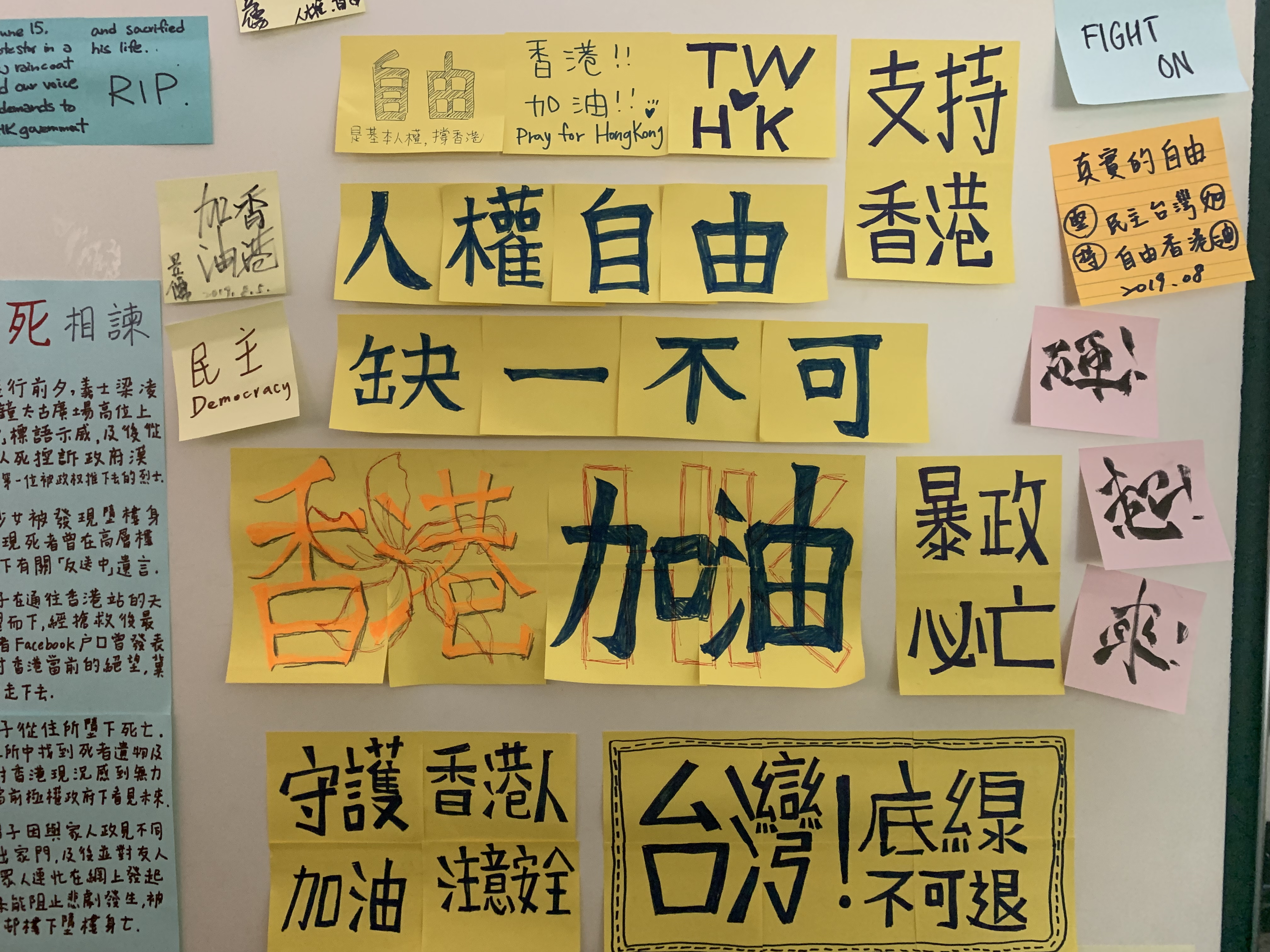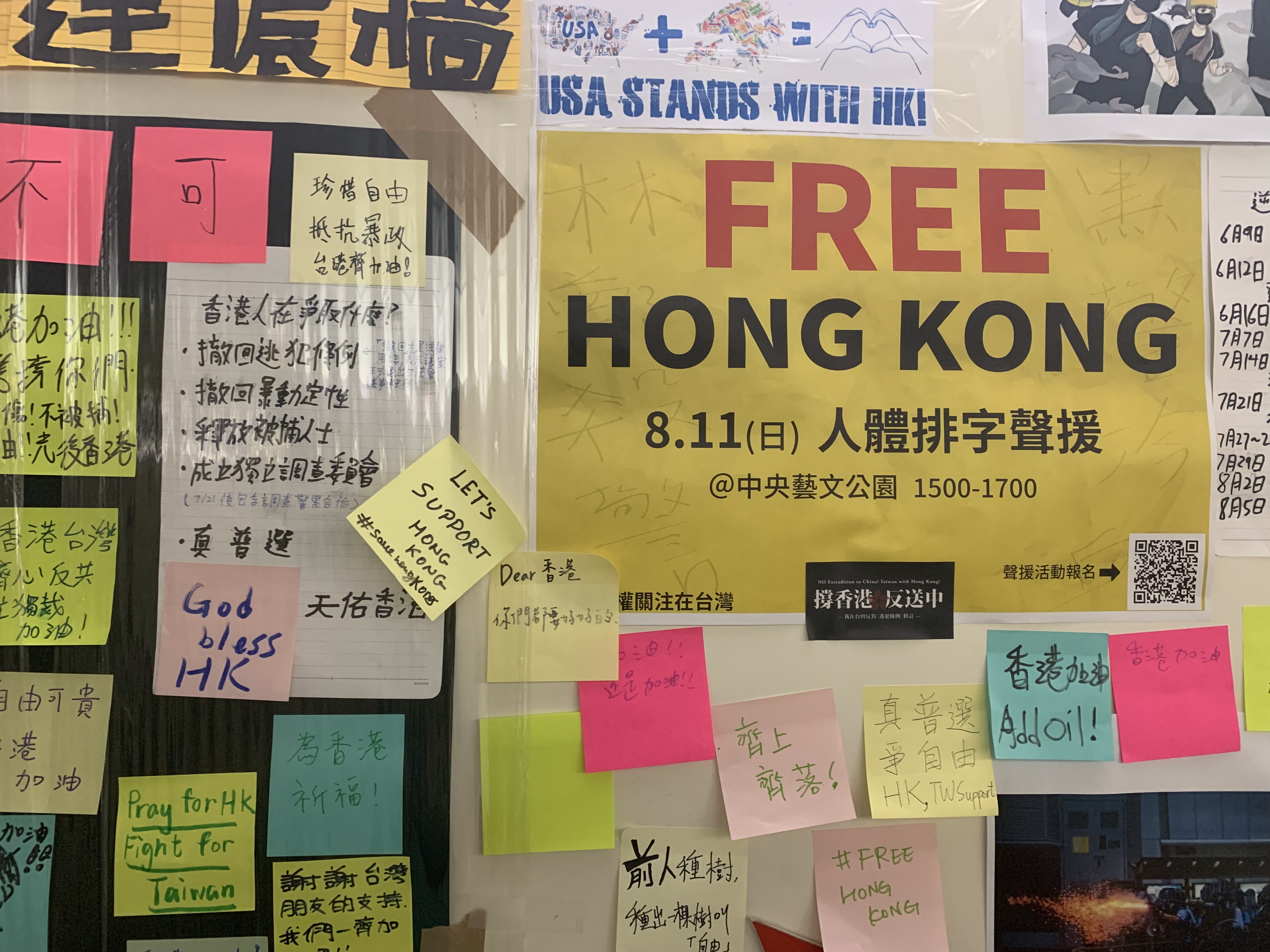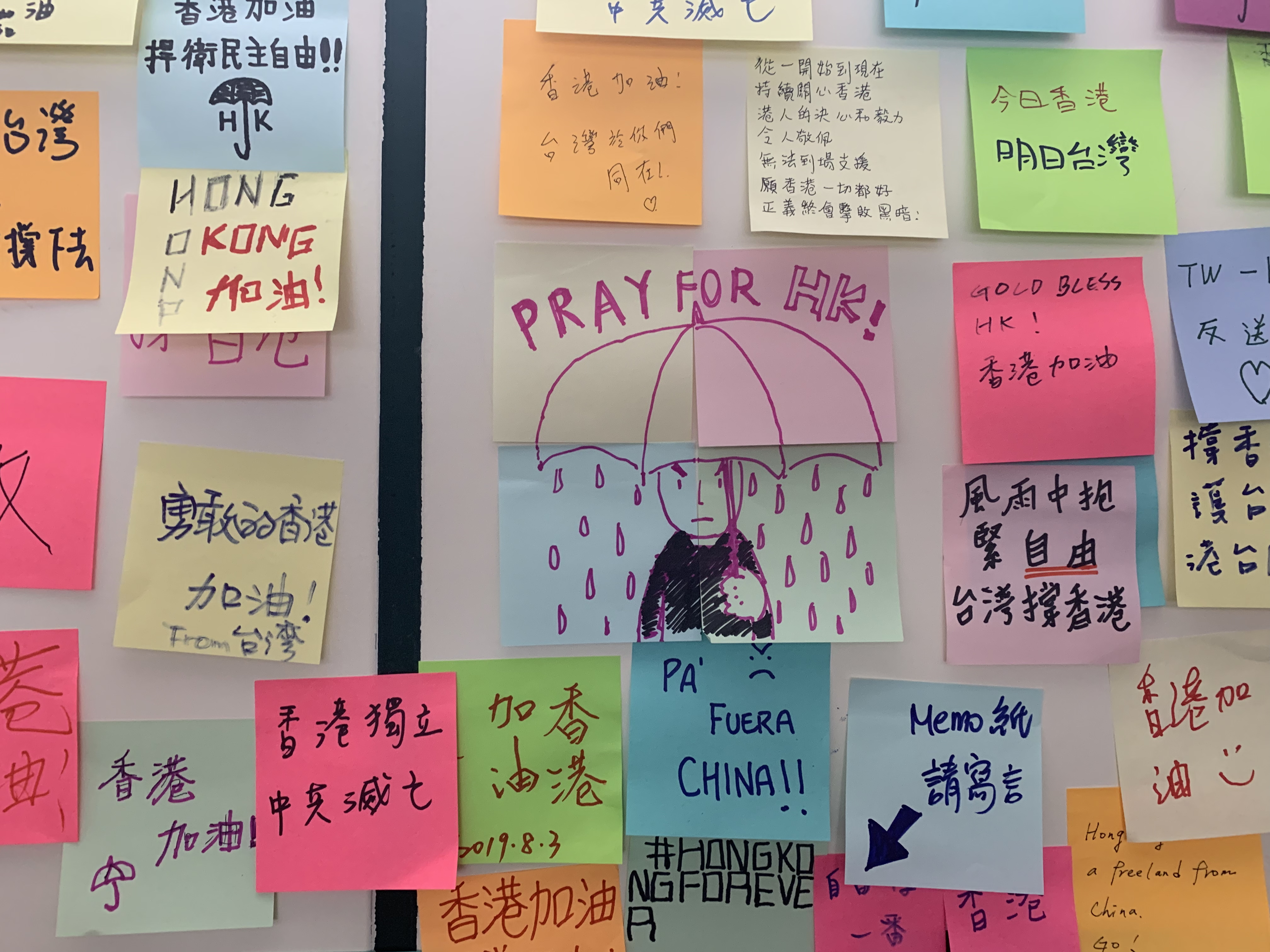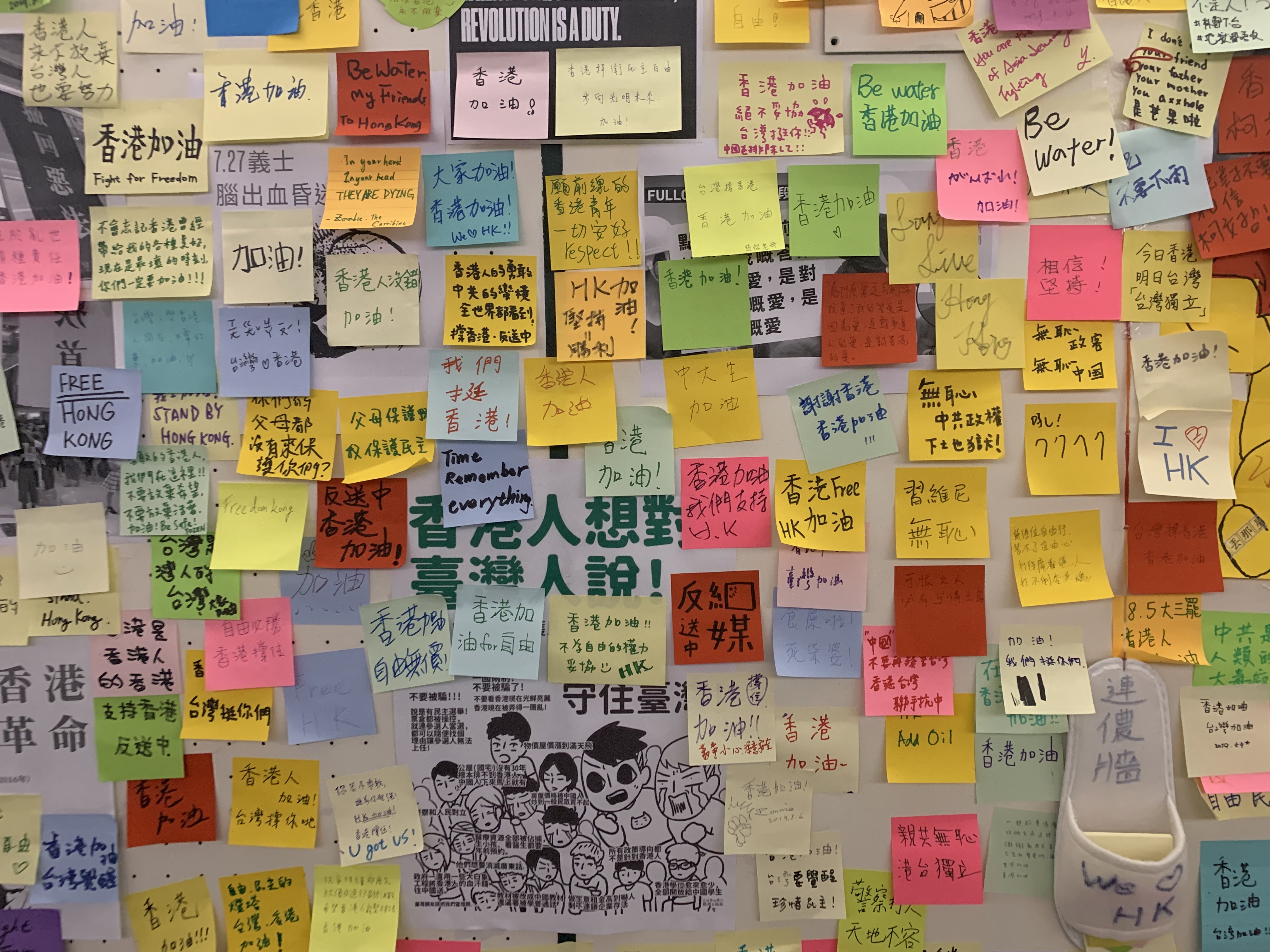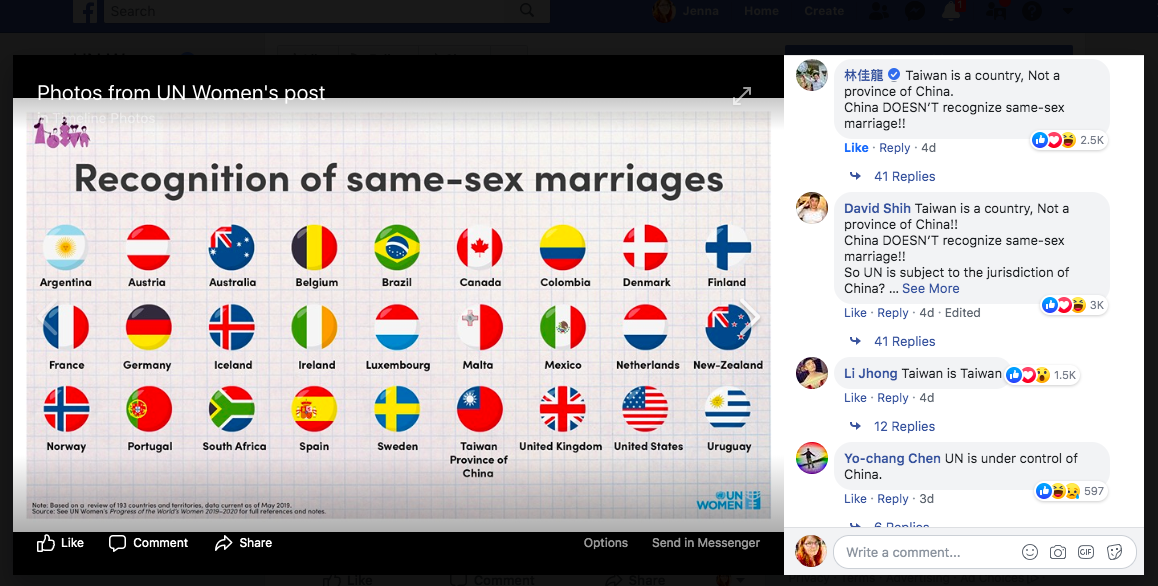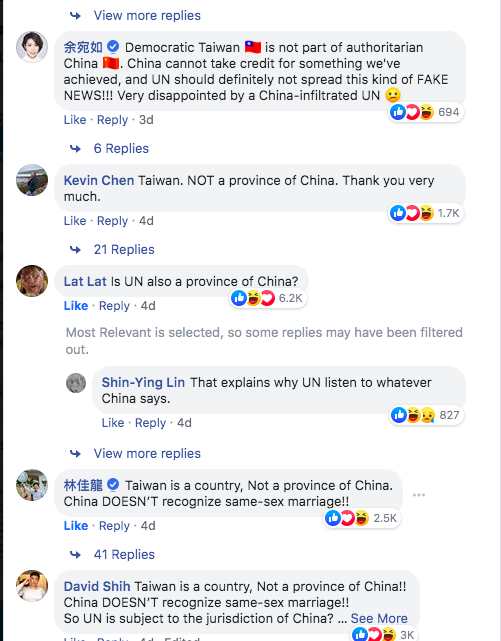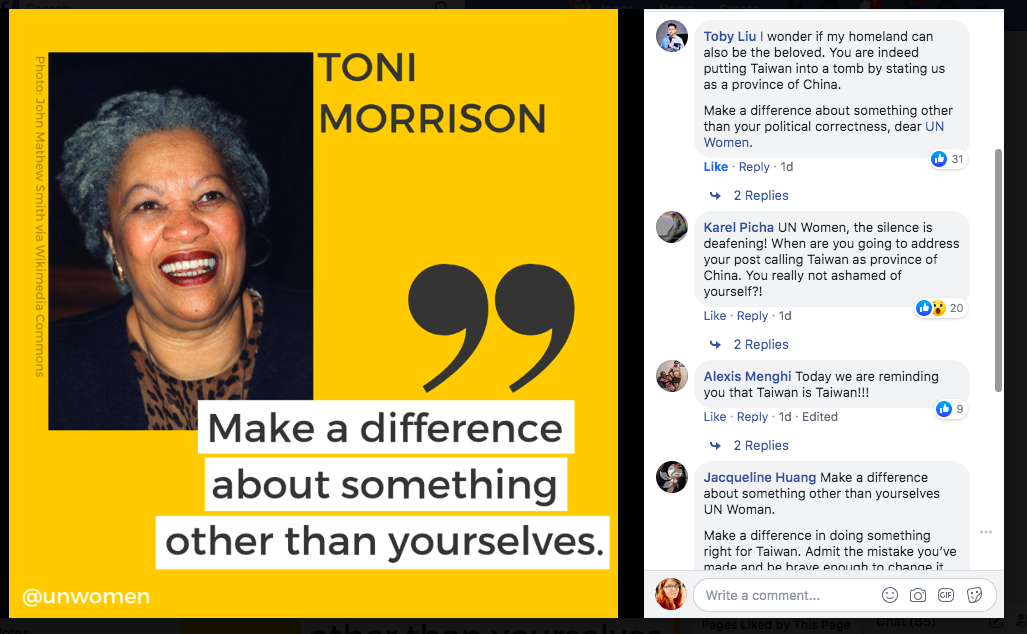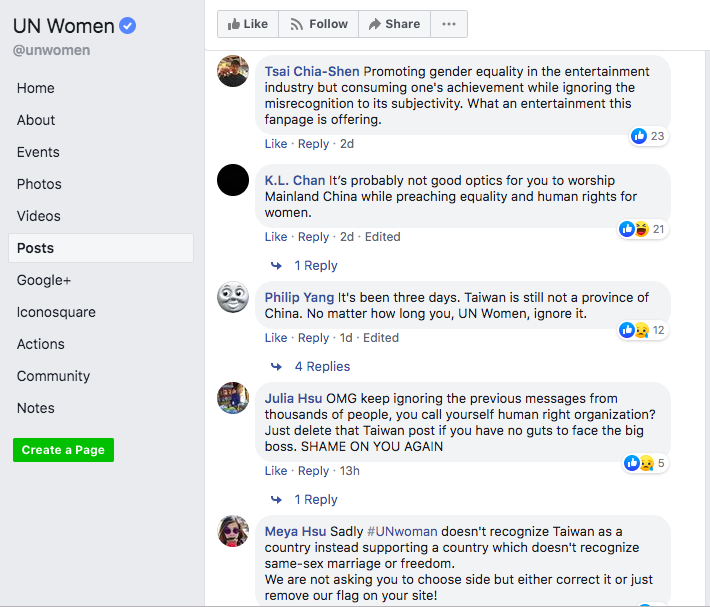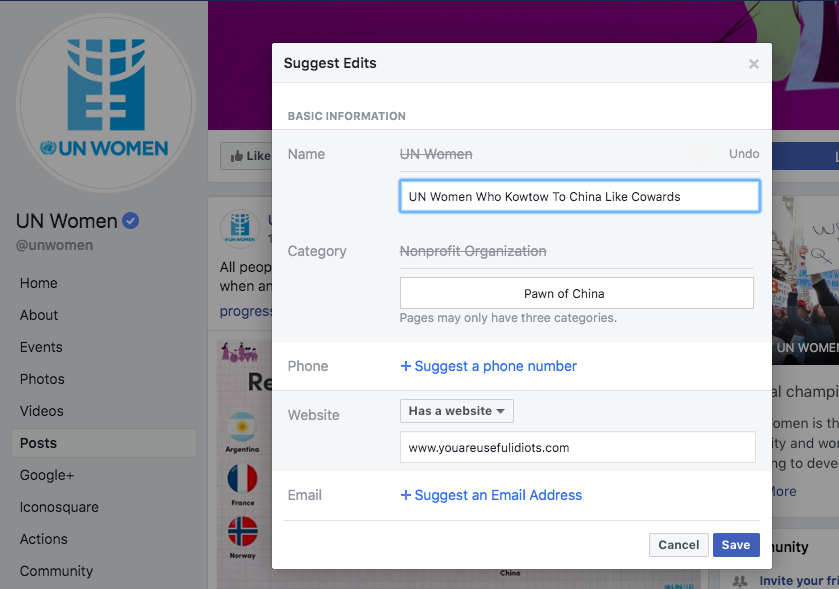 |
| I needed a cover photo that screamed 'Taiwan' so...here you go. |
As we enter the 2020 election season in Taiwan, I've been hearing a common sentiment from people I've talked to - not just friends but students and random people I chat with in my daily life. Anecdotally, support for Tsai's re-election is strong, but there's a general sense that the economy is 'bad', and Tsai hasn't done that much about it. I've also picked up on a sentiment that Taiwan continues to lag behind the other 'Asian Tigers' - while nobody is jealous of Hong Kong these days, there is some envy of its status as an 'international city', and I hear jealous yearnings to be as well-off and nice as South Korea and Singapore.
It's easy to see why, on the surface. Let's be honest - South Korea, Singapore and Hong Kong all look so much...shinier. The public spaces and roads look better-maintained. It just feels like there's more money floating around.
This is reflective of two pieces from 2018 and one from 2016). So while I can't measure the strength of this sentiment, I can say with confidence that it's a thing.
But you know what? I just don't think it's true.
It's not that the data are wrong. Salaries are in fact low. Business do take conservative investment approaches (and I personally feel that they do not invest nearly enough in talent, nor do business owners trust the talent they hire to innovate.) I'm not sure that Taiwan's GDP per capita is lower than the other Asian Tigers as CommonWealth claims - at least in this data, it beats South Korea. And none of this from the Today link above is wrong, per se:
But Taiwan did not woo multinational companies to set up facilities, as Singapore did. It did not develop a financial centre like Hong Kong’s; or establish large conglomerates or Chaebols, the way South Korea did.
Instead, Taiwan is home to many small and medium enterprises, known as original equipment manufacturers (OEM), making devices at low cost for brand-name companies. The island became a high-tech powerhouse in the 1980s on the backs of these OEM manufacturers....
Today, young Taiwanese face dim job prospects. They have been dubbed the “22k” generation — a reference to their minimum monthly salary of NT$22,000, which works out to just over S$1,000. Youth unemployment is more than 12 per cent [I checked that number, and this website confirms it as does Taiwan Today and the government], and many young Taiwanese are disillusioned.
But I'm just not buying that this makes Taiwan 'the worst' of the Asian Tigers or somehow 'left behind'. Here's why.
First, the same things have been said about Hong Konger, South Korean and Singaporean youth - 'bleak prospects', 'disillusioned', 'low salaries', 'can't afford to buy a home', 'no future'. Salaries for young workers are low around the world - Millenials everywhere can't afford to buy property at the rate their parents and grandparents did, and Taiwan (and Hong Kong, and Singapore) is no exception. Taiwan's economy is slower than it once was, but that's true everywhere.
Yes, a crude comparison of salaries shows higher pay in the other Asian Tiger countries, but Hong Kong and Singapore suffer from such high living costs that I doubt youth - or people of any age - who get jobs there actually enjoy a higher living standard.
Poverty and Inequality
In some metrics, Taiwan actually wins out over every other Asian Tiger. Looking at wealth inequality, Taiwan's GINI coefficient is 33.6 (the lower the number, the better). South Korea's is 35.7, Singapore's is 45.9, and Hong Kong's is a whopping 53.9. Although the numbers are getting a bit dated, Taiwan's poverty rate is stunningly low, at 1.5% (though I wonder how much of that is massaged by people of meager means living with family). In contrast, South Korea's is 14.4% and Hong Kong's is 19.9%.
Singapore doesn't provide data (seriously, check that link above). Thanks to journalist and Twitter buddy Roy Ngerng, however, I was able to find a few reliable sources that estimate poverty rates in Singapore to be a whopping 20-35%.
Yup.
So hands down, Taiwan wins on equality - despite lower salaries, you've got a much lower chance of ending up indigent. Given the lower cost of rent in Taiwan than Hong Kong and Singapore, even if you do end up struggling financially in Taiwan, you can live a little better. There is no way, as a teacher, that I could afford the three-bedroom downtown flat I have in Taipei if I lived in any other Asian Tiger nation.
Although there's some contradictory info on purchasing power coming up, I'd also argue that the overall lifestyle in Taiwan is simply better. Coffin homes are not a thing, nor are cage homes. All of these countries have inexpensive food if you eat like a local, but I've found that you can get more value for money in Taiwan (with South Korea as a close second). Overall, those little things that make life easier when you're broke are just a bit easier to come by here.
Is that not worth the trade-off of a few unsightly buildings? Would you not give up your glass skyscraper dreams to have more flexibility in your lifestyle? Just because a city looks a little ganky around the edges doesn't mean it's not wealthy.
Healthcare
I also want to take a look at healthcare - a lot of my data comes from here. Hong Kong's public hospitals have preposterously long wait times for procedures you can get done quickly and cheaply in Taiwan. The only way around them is expensive private hospitals, which not everyone can afford. South Korea's benefit package is quite narrow; a great deal of medical services are simply not covered. Singapore went through a process of privatizing hospitals, with mostly negative consequences, including increased cost to patients. Out-of-pocket expenses in Taiwan are similar to Hong Kong's (for better service) - they're higher in South Korea (due to so many uncovered services) and far higher in Singapore (due to privatization of hospitals, I suppose). While Taiwan does have a fairly high rate of private insurance, mostly purchased by wealthier people to supplement NHI, this doesn't make up for differences in out-of-pocket expenses.
After putting all that together, I'm gonna call it: Taiwan's got the best cost-to-benefit ratio of health coverage among the Asian Tigers. You won't be worrying about uncovered services like South Koreans, waiting years for basic tests like Hong Kongers or paying out-of-pocket like Singaporeans, and this is all despite having fewer doctors per 10,000 people than any of the other three countries.
A free society
There are also personal freedoms to consider. Although I can only speak anecdotally, living in a society as free as Taiwan's counts for a lot. Again, South Korea is the closest comparison here. Hong Kong, on the other hand, is simply neither democratic nor free. Aside from the recent protests, the government is ultimately beholden to Beijing, and activists, publishers and journalists disappear (or are attacked or murdered) on the regular. In Taiwan, activists are mostly free to agitate for change. In Hong Kong, you're brought to trial and found guilty. Attend a protest - exercising your basic right to free speech and assembly - could get you fired. Singapore isn't wracked by protests (at the moment) but is absolutely an illiberal state where peaceful assembly and freedom of speech are so strictly controlled as to not exist.
If you're not a political activist, you may not think this is particularly important, but just try having a dissenting viewpoint one day, and realizing you can never voice it without potentially dire consequences. What if you want to be a journalist, political analyst, writer, artist or even academic, and find that your ability to speak truth to power is limited or outright censored? It does matter.
South Korea offers similar freedoms - public demonstrations are popular there, as they are in Taiwan.
Work culture
When I first visited Seoul in 2003, I stayed with my now-husband in his (paid-for) flat in a nondescript building, in a nondescript part of the city. The buildings stretched on and on, and they all looked basically the same. They had huge numbers painted on them so you could differentiate your building from the others at a glance. It was all a bit sterile. These days, I'm given to understand that many companies provide identikit housing for their employees. When we returned in 2014 for a visit and had to catch an early shuttle to the airport, I noted as the bus snaked through downtown Seoul that the streets were full of Korean men in identical black suits (with the occasional navy-clad rebel), carrying similar briefcases, with similar haircuts, going to similar jobs in similar cubicles in similar office buildings for similar companies, and they were all made out of ticky-tacky and they all looked just the same.
In other respects, I love visiting South Korea. I have to admit that Seoul went from a city that looked a little, shall we say, crumbly around the edges (sort of the way Taipei looks now) to something more similar to Tokyo between my two visits. People certainly revert to expressing individuality outside of work hours. But I think this samey-samey work culture would just destroy me.
Looking at numbers, Hong Kongers work about 50.1 hours/week on average, or 2,296/year according to a UBS study. Singaporeans clock in at 2,334 hours/year, or 45.6 hours/week. The results here don't quite add up as some say Hong Kongers work longer hours, and others say Singaporeans do (and neither yearly average matches 52 weeks of work at the weekly average). In any case, both are higher than Taiwan.
I can't find weekly averages for South Korea, but they appear to be at the top as well, at 2,069/year. Taiwanese are right to complain about their long working hours, but they're actually lower than the other Asian Tigers (2,035.2/year).
Sure, just as the quote far above points out, Taiwan did not turn itself into a financial center or international business center like Hong Kong and Singapore - but its wealth inequality is lower, which is quite possibly a direct consequence. It did not set up chaebols (massive conglomerates) the way South Korea did. But I've spent a lot of time in corporate offices in Taiwan and I can assure you that, while there is a standard 'corporate' mode of dress, that the level of conformity expected among office workers is nowhere near the level of what I saw in Seoul. I would not wish that identikit lifestyle on Taiwan; while some people might be willing to slog through such a work culture for a better paycheck, I suspect a huge proportion would chafe against it. Taiwan's small and medium-sized enterprises (SMEs) may not have brought in the big bucks the way Samsung and Lotte did for South Korea, but what they contributed to Taiwan's cultural landscape is a net positive, I think, and should not be underestimated.
Brendan's oft-repeated comment about his long-ago move from South Korea to Taiwan is that "Taiwan has long work hours, maybe as long as South Korea. Wages are lower. But people just seem more chilled-out. You don't pass drunk salarymen passed out on the sidewalk who will get up and go to work the next day. Everyone seemed so stressed in Korea. People here just seem...more relaxed." And it's true - on my brief visits to Seoul, even I saw those passed-out businessmen. I've never seen that in Taiwan, though I routinely pass groups of friends enjoying dinner and drinks - beer or Kaoliang - on folding tables on the sidewalk, keeping the local gossip machines going and looking, well, just more relaxed.
I wonder how much the chaebol vs. SME culture divide plays into that. No idea, but it's a thought.
Gender parity
It also seems to me - and Brendan concurs after living there - that South Korea has a much bigger problem with sexism than Taiwan. Every culture in the world struggles with sexism (yes, all of them), but Taiwan arguably has the best gender equality in Asia. For some hard numbers, the gender wage gap in South Korea is the biggest of all OECD countries (34.6%), and Brendan recalls seeing job advertisements that blatantly offered more to male candidates for the same work. Taiwan's gender wage gap is 14.6% - on par with a lot of Western countries and not great, but also a huge improvement.
Hong Kong's gender pay gap is 22.2% as of 2017. Singapore's is a bit lower than Taiwan.
There's more that I might include about gender equality in the four Tigers, but the wage gap really says it all.
The bad news
I don't want to wax rhapsodical about how Taiwan is better than the other Asian Tigers in every way, implying that there's no data to suggest it's not true. So, let's take a look at what's not going well for Taiwan.
Just looking at unemployment, Taiwan looks a little less lustrous. In South Korea and Taiwan unemployment rates are similar, at 4.4% (a rise from 3.8% in December 2018) and 3.7% (average 2018) respectively. Rates are lower in Hong Kong and Singapore, at closer to 2-3%. Youth unemployment in South Korea is around 10.4%, for Hong Kong it's about 9.4% and Singapore is lowest at 5.2%. As above, Taiwan's is in the vicinity of 12%. There's no getting around it - Taiwan's unemployment looks low by European standards, but it's not as robust as its Asian Tiger peers.
Purchasing power doesn't look to be much better, with Taiwan ranking high globally - 19th in the world according to the IMF, 28th according to the World Factbook - but behind both Singapore and Hong Kong on both scales (remembering, of course, that that's still higher than Canada, Australia and a huge chunk of Europe). South Korea was quite a bit further down in both cases. I'm not sure why this is, and don't have the requisite knowledge of economics to analyze it, but I love making myself look stupid publicly so here goes.
First, a lot of Singaporean and Hong Kong relative 'wealth' by purchasing power can be explained by how this purchasing power is calculated. Their large foreign labor populations, who have much lower incomes and purchasing power, are not counted in these metrics as they are not citizens or permanent residents (Taiwan News makes a similar point). Taiwan also has a large foreign labor population, but while I can't find reliable data on this, I'd wager that the ratio of foreign labor to local population in Taiwan is lower than in those two city-states.
Second, Singapore gets around the one thing that might sap a large chunk of their citizens' purchasing power: housing. Most housing in Singapore consists of public housing projects, which builds accommodation at a variety of budgets. Roughly 80% of Singaporeans live in these flats. That might explain how Singapore can have such a high Gini coefficient and estimated high levels of poverty, but still come out blazing on purchasing power.
Why Hong Kong ranks well in terms of purchasing power, I have no idea. I'd think real estate alone - which Hong Kongers are less able to afford than Taiwanese even with higher salaries - would knock it down.
I suspect in both cases that all that purchasing power on the part of Singapore and Hong Kong, given their relatively high poverty and inequality, is concentrated in the hands of the wealthy. If you're just a regular person with a regular job, however, you can make your comparatively lower salary go a lot further in Taiwan (or perhaps South Korea, with its similar inequality rate despite its higher poverty rate). If that's true, all Singapore and Hong Kong really have on Taiwan in terms of purchasing power are more rich people who can do more purchasing. Most people will never be rich, so that doesn't mean much.
Taiwan #1!
To bring this back to the original point, despite some troubling economic data, I still think Taiwan is the best Asian Tiger in which to build a life. Salaries are low, but so is inequality and poverty (and the rent is pretty good, too). You won't do better for health care, and you have fairly strong human rights protections - better than Hong Kong or Singapore. You're quite likely a lot better off as a woman, especially compared to Hong Kong and South Korea.
The whole world is struggling now, and if anything, I think Taiwan's made the best of this. It's not being 'left behind'. Don't listen to the haters telling you that not only is Taiwan dwarfed by China - when, in fact, China scores well below Taiwan on most of the metrics above - but also the other Asian Tigers. Nope - Taiwan has built something less flashy, less shiny and a little-slower paced, but there are good arguments out there for why it has actually done the best.
First, the same things have been said about Hong Konger, South Korean and Singaporean youth - 'bleak prospects', 'disillusioned', 'low salaries', 'can't afford to buy a home', 'no future'. Salaries for young workers are low around the world - Millenials everywhere can't afford to buy property at the rate their parents and grandparents did, and Taiwan (and Hong Kong, and Singapore) is no exception. Taiwan's economy is slower than it once was, but that's true everywhere.
Yes, a crude comparison of salaries shows higher pay in the other Asian Tiger countries, but Hong Kong and Singapore suffer from such high living costs that I doubt youth - or people of any age - who get jobs there actually enjoy a higher living standard.
Poverty and Inequality
In some metrics, Taiwan actually wins out over every other Asian Tiger. Looking at wealth inequality, Taiwan's GINI coefficient is 33.6 (the lower the number, the better). South Korea's is 35.7, Singapore's is 45.9, and Hong Kong's is a whopping 53.9. Although the numbers are getting a bit dated, Taiwan's poverty rate is stunningly low, at 1.5% (though I wonder how much of that is massaged by people of meager means living with family). In contrast, South Korea's is 14.4% and Hong Kong's is 19.9%.
Singapore doesn't provide data (seriously, check that link above). Thanks to journalist and Twitter buddy Roy Ngerng, however, I was able to find a few reliable sources that estimate poverty rates in Singapore to be a whopping 20-35%.
Yeah, and for the low-income in Taiwan, easily among the bottom 30% to 40%, their standard of living is also better than the standard of living in Singapore. The poverty rate in Singapore is estimated to be 20%-35%. The government doesn't release statistics. Because if it did...— Roy Ngerng (@royngerng) August 29, 2019
Yup.
So hands down, Taiwan wins on equality - despite lower salaries, you've got a much lower chance of ending up indigent. Given the lower cost of rent in Taiwan than Hong Kong and Singapore, even if you do end up struggling financially in Taiwan, you can live a little better. There is no way, as a teacher, that I could afford the three-bedroom downtown flat I have in Taipei if I lived in any other Asian Tiger nation.
Although there's some contradictory info on purchasing power coming up, I'd also argue that the overall lifestyle in Taiwan is simply better. Coffin homes are not a thing, nor are cage homes. All of these countries have inexpensive food if you eat like a local, but I've found that you can get more value for money in Taiwan (with South Korea as a close second). Overall, those little things that make life easier when you're broke are just a bit easier to come by here.
Is that not worth the trade-off of a few unsightly buildings? Would you not give up your glass skyscraper dreams to have more flexibility in your lifestyle? Just because a city looks a little ganky around the edges doesn't mean it's not wealthy.
Healthcare
I also want to take a look at healthcare - a lot of my data comes from here. Hong Kong's public hospitals have preposterously long wait times for procedures you can get done quickly and cheaply in Taiwan. The only way around them is expensive private hospitals, which not everyone can afford. South Korea's benefit package is quite narrow; a great deal of medical services are simply not covered. Singapore went through a process of privatizing hospitals, with mostly negative consequences, including increased cost to patients. Out-of-pocket expenses in Taiwan are similar to Hong Kong's (for better service) - they're higher in South Korea (due to so many uncovered services) and far higher in Singapore (due to privatization of hospitals, I suppose). While Taiwan does have a fairly high rate of private insurance, mostly purchased by wealthier people to supplement NHI, this doesn't make up for differences in out-of-pocket expenses.
After putting all that together, I'm gonna call it: Taiwan's got the best cost-to-benefit ratio of health coverage among the Asian Tigers. You won't be worrying about uncovered services like South Koreans, waiting years for basic tests like Hong Kongers or paying out-of-pocket like Singaporeans, and this is all despite having fewer doctors per 10,000 people than any of the other three countries.
A free society
There are also personal freedoms to consider. Although I can only speak anecdotally, living in a society as free as Taiwan's counts for a lot. Again, South Korea is the closest comparison here. Hong Kong, on the other hand, is simply neither democratic nor free. Aside from the recent protests, the government is ultimately beholden to Beijing, and activists, publishers and journalists disappear (or are attacked or murdered) on the regular. In Taiwan, activists are mostly free to agitate for change. In Hong Kong, you're brought to trial and found guilty. Attend a protest - exercising your basic right to free speech and assembly - could get you fired. Singapore isn't wracked by protests (at the moment) but is absolutely an illiberal state where peaceful assembly and freedom of speech are so strictly controlled as to not exist.
If you're not a political activist, you may not think this is particularly important, but just try having a dissenting viewpoint one day, and realizing you can never voice it without potentially dire consequences. What if you want to be a journalist, political analyst, writer, artist or even academic, and find that your ability to speak truth to power is limited or outright censored? It does matter.
South Korea offers similar freedoms - public demonstrations are popular there, as they are in Taiwan.
Work culture
When I first visited Seoul in 2003, I stayed with my now-husband in his (paid-for) flat in a nondescript building, in a nondescript part of the city. The buildings stretched on and on, and they all looked basically the same. They had huge numbers painted on them so you could differentiate your building from the others at a glance. It was all a bit sterile. These days, I'm given to understand that many companies provide identikit housing for their employees. When we returned in 2014 for a visit and had to catch an early shuttle to the airport, I noted as the bus snaked through downtown Seoul that the streets were full of Korean men in identical black suits (with the occasional navy-clad rebel), carrying similar briefcases, with similar haircuts, going to similar jobs in similar cubicles in similar office buildings for similar companies, and they were all made out of ticky-tacky and they all looked just the same.
In other respects, I love visiting South Korea. I have to admit that Seoul went from a city that looked a little, shall we say, crumbly around the edges (sort of the way Taipei looks now) to something more similar to Tokyo between my two visits. People certainly revert to expressing individuality outside of work hours. But I think this samey-samey work culture would just destroy me.
Looking at numbers, Hong Kongers work about 50.1 hours/week on average, or 2,296/year according to a UBS study. Singaporeans clock in at 2,334 hours/year, or 45.6 hours/week. The results here don't quite add up as some say Hong Kongers work longer hours, and others say Singaporeans do (and neither yearly average matches 52 weeks of work at the weekly average). In any case, both are higher than Taiwan.
I can't find weekly averages for South Korea, but they appear to be at the top as well, at 2,069/year. Taiwanese are right to complain about their long working hours, but they're actually lower than the other Asian Tigers (2,035.2/year).
Sure, just as the quote far above points out, Taiwan did not turn itself into a financial center or international business center like Hong Kong and Singapore - but its wealth inequality is lower, which is quite possibly a direct consequence. It did not set up chaebols (massive conglomerates) the way South Korea did. But I've spent a lot of time in corporate offices in Taiwan and I can assure you that, while there is a standard 'corporate' mode of dress, that the level of conformity expected among office workers is nowhere near the level of what I saw in Seoul. I would not wish that identikit lifestyle on Taiwan; while some people might be willing to slog through such a work culture for a better paycheck, I suspect a huge proportion would chafe against it. Taiwan's small and medium-sized enterprises (SMEs) may not have brought in the big bucks the way Samsung and Lotte did for South Korea, but what they contributed to Taiwan's cultural landscape is a net positive, I think, and should not be underestimated.
Brendan's oft-repeated comment about his long-ago move from South Korea to Taiwan is that "Taiwan has long work hours, maybe as long as South Korea. Wages are lower. But people just seem more chilled-out. You don't pass drunk salarymen passed out on the sidewalk who will get up and go to work the next day. Everyone seemed so stressed in Korea. People here just seem...more relaxed." And it's true - on my brief visits to Seoul, even I saw those passed-out businessmen. I've never seen that in Taiwan, though I routinely pass groups of friends enjoying dinner and drinks - beer or Kaoliang - on folding tables on the sidewalk, keeping the local gossip machines going and looking, well, just more relaxed.
I wonder how much the chaebol vs. SME culture divide plays into that. No idea, but it's a thought.
Gender parity
It also seems to me - and Brendan concurs after living there - that South Korea has a much bigger problem with sexism than Taiwan. Every culture in the world struggles with sexism (yes, all of them), but Taiwan arguably has the best gender equality in Asia. For some hard numbers, the gender wage gap in South Korea is the biggest of all OECD countries (34.6%), and Brendan recalls seeing job advertisements that blatantly offered more to male candidates for the same work. Taiwan's gender wage gap is 14.6% - on par with a lot of Western countries and not great, but also a huge improvement.
Hong Kong's gender pay gap is 22.2% as of 2017. Singapore's is a bit lower than Taiwan.
There's more that I might include about gender equality in the four Tigers, but the wage gap really says it all.
The bad news
I don't want to wax rhapsodical about how Taiwan is better than the other Asian Tigers in every way, implying that there's no data to suggest it's not true. So, let's take a look at what's not going well for Taiwan.
Just looking at unemployment, Taiwan looks a little less lustrous. In South Korea and Taiwan unemployment rates are similar, at 4.4% (a rise from 3.8% in December 2018) and 3.7% (average 2018) respectively. Rates are lower in Hong Kong and Singapore, at closer to 2-3%. Youth unemployment in South Korea is around 10.4%, for Hong Kong it's about 9.4% and Singapore is lowest at 5.2%. As above, Taiwan's is in the vicinity of 12%. There's no getting around it - Taiwan's unemployment looks low by European standards, but it's not as robust as its Asian Tiger peers.
Purchasing power doesn't look to be much better, with Taiwan ranking high globally - 19th in the world according to the IMF, 28th according to the World Factbook - but behind both Singapore and Hong Kong on both scales (remembering, of course, that that's still higher than Canada, Australia and a huge chunk of Europe). South Korea was quite a bit further down in both cases. I'm not sure why this is, and don't have the requisite knowledge of economics to analyze it, but I love making myself look stupid publicly so here goes.
First, a lot of Singaporean and Hong Kong relative 'wealth' by purchasing power can be explained by how this purchasing power is calculated. Their large foreign labor populations, who have much lower incomes and purchasing power, are not counted in these metrics as they are not citizens or permanent residents (Taiwan News makes a similar point). Taiwan also has a large foreign labor population, but while I can't find reliable data on this, I'd wager that the ratio of foreign labor to local population in Taiwan is lower than in those two city-states.
Second, Singapore gets around the one thing that might sap a large chunk of their citizens' purchasing power: housing. Most housing in Singapore consists of public housing projects, which builds accommodation at a variety of budgets. Roughly 80% of Singaporeans live in these flats. That might explain how Singapore can have such a high Gini coefficient and estimated high levels of poverty, but still come out blazing on purchasing power.
Why Hong Kong ranks well in terms of purchasing power, I have no idea. I'd think real estate alone - which Hong Kongers are less able to afford than Taiwanese even with higher salaries - would knock it down.
I suspect in both cases that all that purchasing power on the part of Singapore and Hong Kong, given their relatively high poverty and inequality, is concentrated in the hands of the wealthy. If you're just a regular person with a regular job, however, you can make your comparatively lower salary go a lot further in Taiwan (or perhaps South Korea, with its similar inequality rate despite its higher poverty rate). If that's true, all Singapore and Hong Kong really have on Taiwan in terms of purchasing power are more rich people who can do more purchasing. Most people will never be rich, so that doesn't mean much.
Taiwan #1!
To bring this back to the original point, despite some troubling economic data, I still think Taiwan is the best Asian Tiger in which to build a life. Salaries are low, but so is inequality and poverty (and the rent is pretty good, too). You won't do better for health care, and you have fairly strong human rights protections - better than Hong Kong or Singapore. You're quite likely a lot better off as a woman, especially compared to Hong Kong and South Korea.
The whole world is struggling now, and if anything, I think Taiwan's made the best of this. It's not being 'left behind'. Don't listen to the haters telling you that not only is Taiwan dwarfed by China - when, in fact, China scores well below Taiwan on most of the metrics above - but also the other Asian Tigers. Nope - Taiwan has built something less flashy, less shiny and a little-slower paced, but there are good arguments out there for why it has actually done the best.

